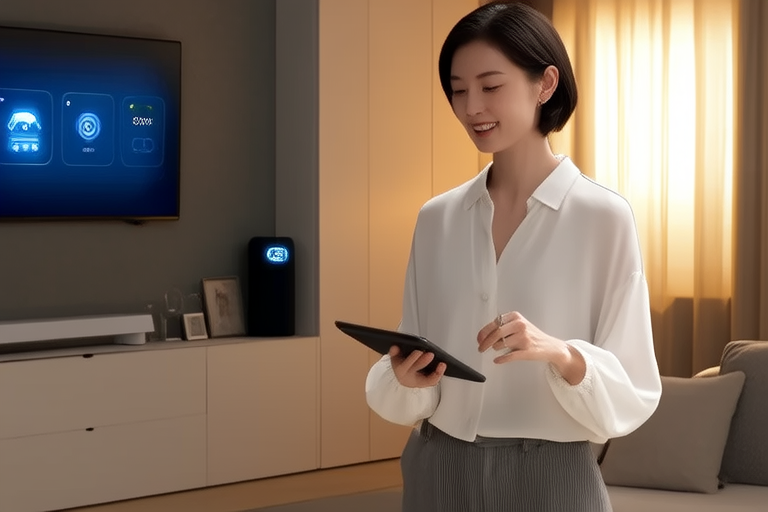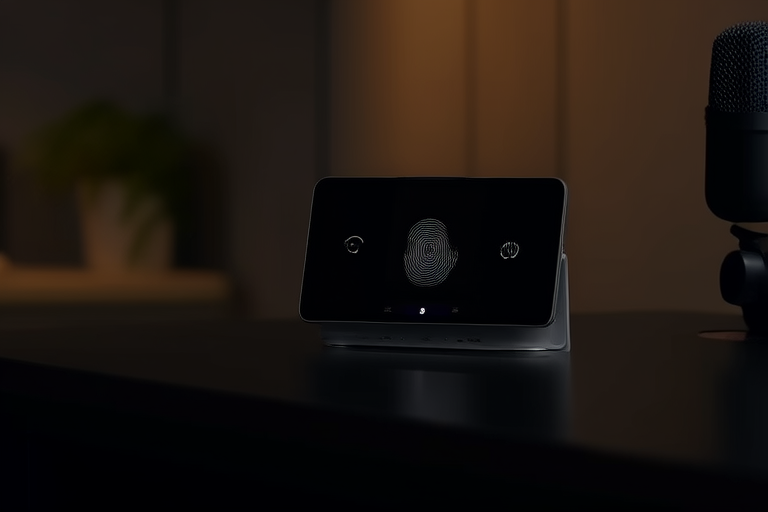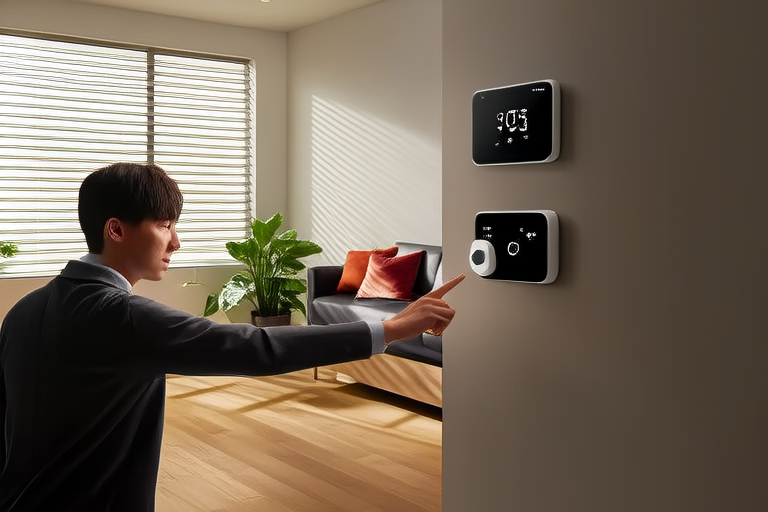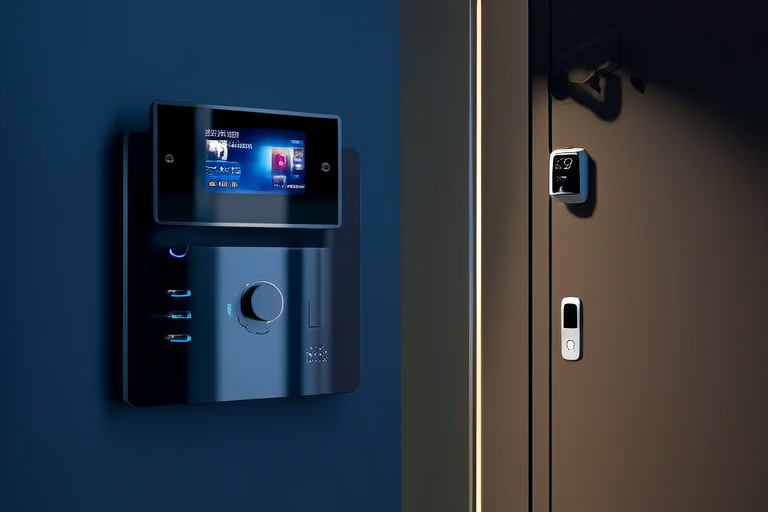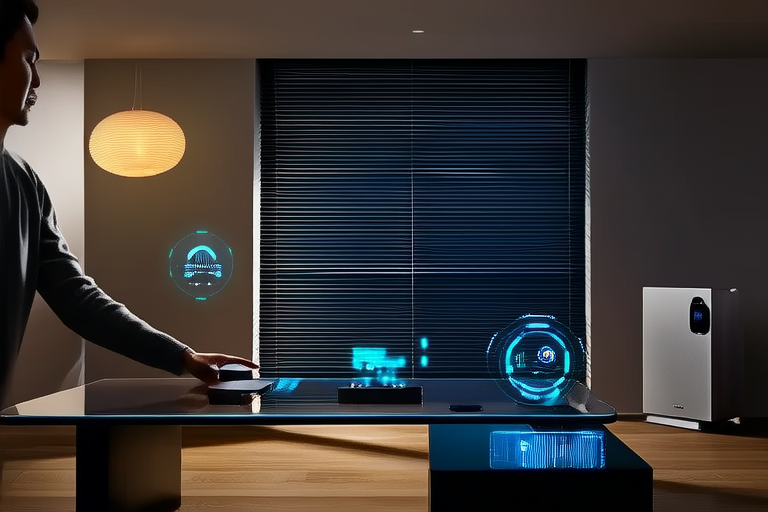The Future of Living: How Smart Homes Are Revolutionizing Daily Life
Introduction: The Rise of Smart Homes
In recent years, smart homes have emerged as a transformative force in the way people live, blending cutting-edge technology with everyday domestic life. These homes are equipped with interconnected devices that enable users to control lighting, temperature, security systems, and appliances through smartphones or voice commands. The proliferation of the Internet of Things (IoT) has been a driving factor behind this evolution, making it possible for households to become more efficient, responsive, and intuitive. As the adoption of smart home technology grows, its impact on modern living is becoming increasingly evident, reshaping how individuals interact with their environments and manage daily tasks.
Key Innovations in Smart Home Technology
Voice Assistants: The Central Hub of Control
Voice assistants like Amazon Alexa, Google Assistant, and Apple’s Siri have become the cornerstone of many smart homes. These AI-driven platforms allow users to perform a wide range of tasks hands-free, from adjusting thermostats to playing music or setting reminders. By leveraging natural language processing, voice assistants provide an accessible and user-friendly interface that bridges the gap between humans and machines. Their ability to integrate with numerous devices ensures seamless control over various aspects of the home environment.
Automation Systems: Enhancing Efficiency
Automation lies at the heart of smart home innovation. Systems such as smart lighting, automated window blinds, and robotic vacuums streamline household chores by operating based on pre-set schedules or real-time triggers. For instance, lights can dim automatically when a movie starts playing, or blinds can adjust according to the time of day to optimize natural light. This level of automation not only saves time but also reduces human error, creating a smoother and more predictable living experience.
Energy Management: A Step Toward Sustainability
Smart energy management systems are revolutionizing how households consume resources. Devices like smart thermostats and energy monitors enable homeowners to track usage patterns and make informed decisions about reducing waste. These systems often incorporate machine learning algorithms to adapt to user preferences and environmental conditions, ensuring optimal energy efficiency. By lowering utility bills and minimizing carbon footprints, smart energy solutions contribute significantly to sustainable living practices.
Benefits of Smart Homes in Daily Life
Convenience Redefined
One of the most immediate advantages of smart homes is the unparalleled convenience they offer. With just a few taps on a smartphone or spoken commands, residents can manage multiple aspects of their living space without physical intervention. Whether it’s locking doors remotely, preheating ovens before arriving home, or receiving notifications about grocery restocking needs, these conveniences save time and effort, allowing individuals to focus on other priorities.
Enhanced Security and Peace of Mind
Smart security systems have redefined home safety by providing advanced monitoring capabilities. Features such as video doorbells, motion sensors, and facial recognition cameras ensure round-the-clock surveillance. Many systems also send instant alerts to homeowners’ phones if unusual activity is detected, enabling swift responses to potential threats. Additionally, remote access allows users to check on their property from anywhere in the world, fostering peace of mind even when they’re away.
Promoting Sustainable Living
Beyond personal benefits, smart homes play a crucial role in promoting sustainability. Energy-efficient appliances, solar panel integration, and water-saving technologies collectively reduce resource consumption. Furthermore, data analytics provided by smart systems empower users to identify areas where further improvements can be made. This dual focus on individual comfort and environmental responsibility underscores the broader societal value of smart home adoption.
Challenges and Concerns Surrounding Smart Homes
Privacy Risks and Data Vulnerabilities
While smart homes bring numerous advantages, they also raise significant privacy concerns. Connected devices constantly collect data about users’ habits, preferences, and routines, which could potentially be exploited by malicious actors. Cybersecurity breaches pose another risk, as hackers may gain unauthorized access to sensitive information or even take control of critical systems within the home. Addressing these vulnerabilities requires robust encryption protocols and transparent data handling policies.
High Costs and Accessibility Issues
The initial investment required for setting up a fully functional smart home can be prohibitive for many households. High-end gadgets, installation fees, and ongoing subscription services add up quickly, making this technology less accessible to lower-income families. Moreover, some regions lack the necessary infrastructure to support widespread IoT implementation, limiting its reach. Bridging these gaps will be essential to ensure equitable access to the benefits of smart living.
Complexity and Learning Curves
Despite advancements in user interfaces, managing a smart home ecosystem can still be daunting for non-tech-savvy individuals. Setting up devices, troubleshooting connectivity issues, and keeping software updated demand a certain level of technical expertise. Simplifying these processes while maintaining functionality remains a challenge for manufacturers and developers alike.
The Future Evolution of Smart Homes
Toward Fully Autonomous Living Spaces
Looking ahead, smart homes are poised to evolve into fully autonomous environments capable of anticipating and fulfilling residents’ needs without explicit instructions. Advances in artificial intelligence and machine learning will enable systems to learn behavioral patterns and adapt accordingly. For example, kitchens might prepare meals based on dietary preferences, while bathrooms could adjust water temperatures according to individual schedules. Such innovations promise to elevate convenience to unprecedented levels.
Integration with Smart Cities
As urban areas embrace smart city initiatives, smart homes will likely become integral components of larger interconnected networks. Imagine a scenario where traffic updates influence your alarm clock timing, or local air quality readings adjust indoor ventilation settings. This synergy between residential and municipal technologies holds immense potential for enhancing overall quality of life.
Societal Implications and Ethical Considerations
The widespread adoption of smart homes raises important questions about equity, ethics, and governance. Policymakers must address issues related to digital divides, ensuring that technological progress does not exacerbate existing inequalities. Additionally, ethical frameworks governing data collection and usage need to be established to protect individual rights. Balancing innovation with accountability will be key to fostering trust and acceptance among consumers.
Conclusion: Shaping Tomorrow’s Lifestyle Today
Smart homes represent a paradigm shift in how we envision and interact with our living spaces. By integrating advanced technologies into everyday life, they deliver tangible benefits ranging from enhanced convenience and security to greater sustainability. However, realizing their full potential necessitates addressing challenges related to privacy, cost, and accessibility. As we move forward, the continued evolution of smart homes promises to redefine not only individual lifestyles but also the fabric of society itself. In doing so, they embody the spirit of progress—a testament to humanity’s enduring quest for smarter, better ways to live.
